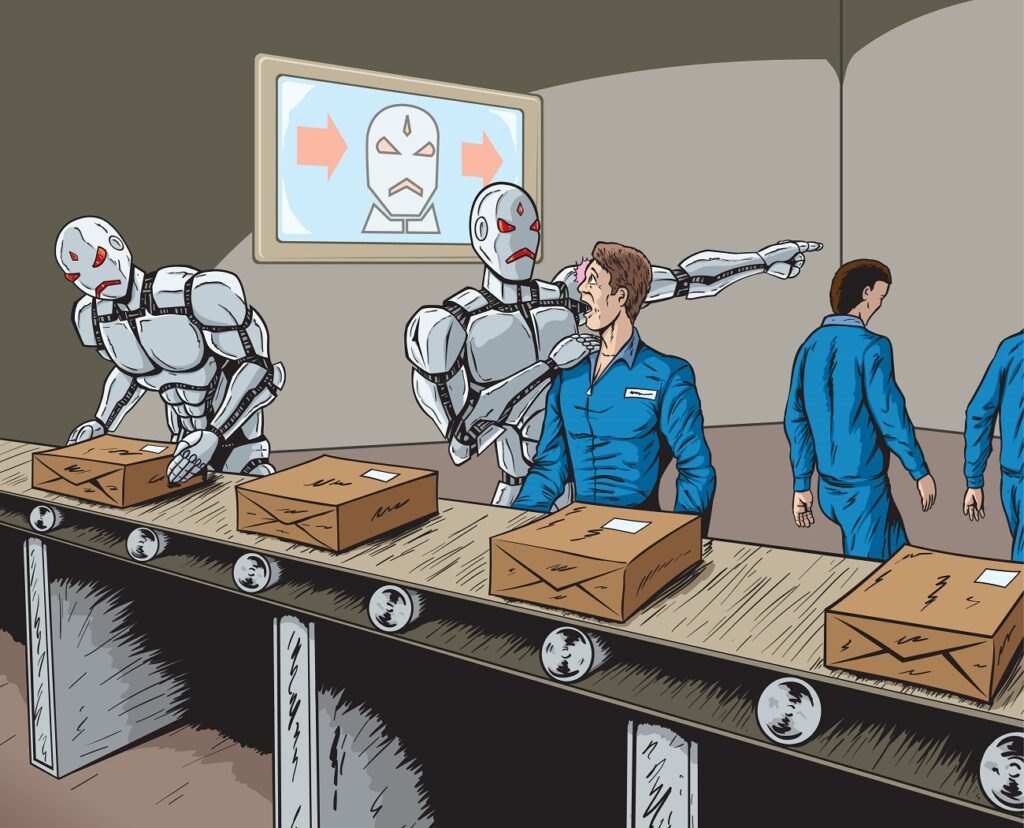HRZone has a range of books available for review. If you would like to receive one of our business books, free of charge, please contact the editor on editor at hrzone dot com and we can send you a list of what’s available. In return, we ask for a 400-700 word review of the book, its content and whether it’s appropriate for a senior HR director audience and for business professionals looking to become more effective in their roles.
Title: Will the future workplace still need you?: An essential career survival guide for the imminent future
Author: Mr Kazim Ladimeji
ISBN: 978-1514706008
Reviewer: David Evans, Burn Bridge Associates
Reviewer’s rating: 2 out of 5
Described by the author as an ‘essay’ this slim, self-published book will give you food for thought after its 45 minute read.
Ladimeji seeks to provide a career guidance tool in the form of a concise summary of the ways in which the traditional employment model is being eroded by the introduction of robotic ‘workers’. This inevitable transition wherein artificial intelligence devices will take over tasks as diverse as driving vehicles, brick-laying and serving fast food is something that we should become aware, familiar with and accepting of.
A consequence of this, the author asserts, is the possibility that we may all have to accept a reduction in working hours – this is something that has been variously forecast over the last 70-80 years and has yet to be seriously felt, if me and my acquaintances are anything to go by. However, in a world increasing in number and seeing a growth in robotic labour, maybe Ladimeji is right; maybe the early-mid 21st Century is the point at which there is simply not enough meaningful work to go around.
Ladimeji instead believes that the focus for work will be on roles in the leisure, wellbeing and health sectors. Furthermore, teaching, engineering, computer sciences and selling are sectors he believes will continue to require a significant human input.
It is not clear to what extent the author’s focus has been simply on the developed / western world of work: whilst the developed world might indeed be seeing slow- / no-growth maturity in many sectors, employment opportunities in many ‘traditional’ sectors are undoubtedly likely to continue in the emerging economies.
The book has certainly been well-researched. However, for me, I feel that Ladimeji has missed an opportunity to develop the themes he introduces in this pamphlet: after all, the subject-matter has wide relevance; to employers, employees, school and university students and organisational sociologists.
Furthermore, it does not – in my opinion – deliver on the promise of the sub-title “an essential career survival guide for the immediate future”. This is because it neither argues persuasively enough that artificial intelligence is imminently going to close out significant numbers of employment opportunities; nor does it provide a career guide. Nonetheless, it does however alert readers to the trends that will have some impact at some point in the future and it will encourage them to seek more information.
The book is available at Ladimeji’s website – www.thecareercafe.co.uk.






